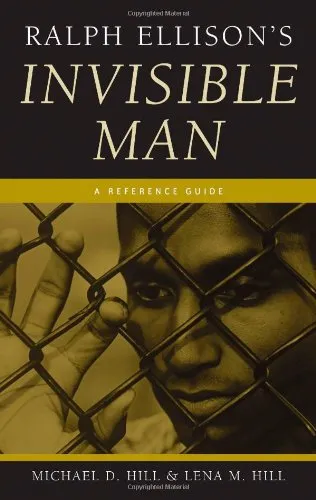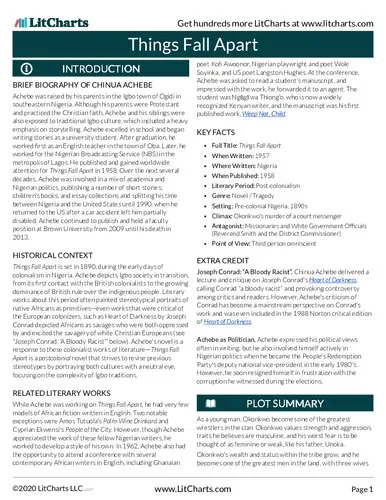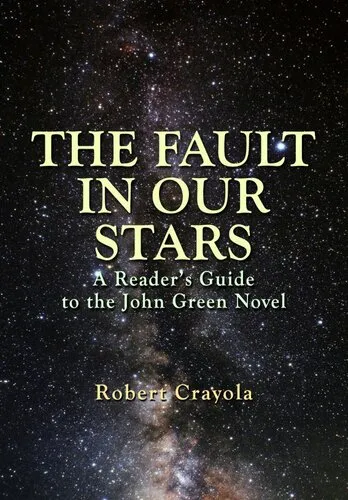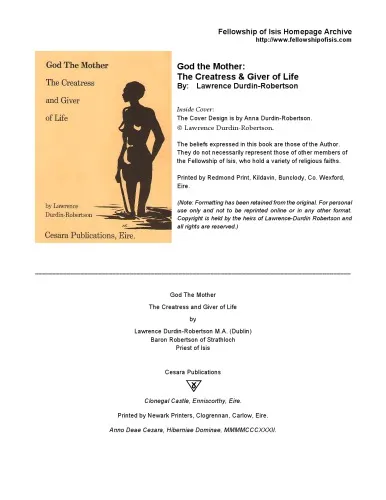Things Fall Apart (Everyman's Library)
3.7
Reviews from our users

You Can Ask your questions from this book's AI after Login
Each download or ask from book AI costs 2 points. To earn more free points, please visit the Points Guide Page and complete some valuable actions.Related Refrences:
Persian Summary
Introduction to "Things Fall Apart"
“Things Fall Apart” is a powerful and poignant novel written by Nigerian author Chinua Achebe. First published in 1958, this seminal work has become a classic of African literature, heralded for its profound exploration of ethnic identity, cultural conflict, and the devastating impact of colonialism. This unique edition of the novel in Everyman's Library offers readers an opportunity to delve deeper into its timeless narrative, rich with historical and sociocultural insights.
Summary of the Book
“Things Fall Apart” centers around the life of Okonkwo, a prominent and ambitious leader in the Igbo community of Umuofia in Nigeria. Set in the late 1800s, the novel captures the transformation of an African society through the eyes of its protagonist. Okonkwo’s journey represents not just personal strife but the broader existential uncertainties facing his community during the onset of European colonial rule and Christian missionary influence.
Okonkwo, driven by a desire to escape the perceived weaknesses of his father, rises to prominence through hard work and prowess in warfare. However, his achievements don't shield him from personal tragedy and societal change. The arrival of missionaries and colonial administrators begins to fracture Igbo traditions and beliefs. As these intrusions deepen, Okonkwo's world begins to "fall apart" both literally and metaphorically, leading to a climactic and tragic conclusion.
Key Takeaways
“Things Fall Apart” offers a multifaceted understanding of change, identity, and resilience. Here are some key insights:
- Tradition vs Change: The book illustrates the tension between the old ways and new influences, illustrating how cultures grapple with preserving heritage while adapting to change.
- Masculinity and Power: Okonkwo’s character embodies the struggle for identity and power within a patriarchal society, highlighting themes of masculinity and strength as double-edged swords.
- Impact of Colonialism: Achebe candidly depicts the disruption caused by colonial forces and religion, showing how these external pressures can dismantle traditional communities.
- The Complexity of Igbo Culture: Through detailed storytelling, Achebe paints a multifaceted portrayal of Igbo life, offering a counter-narrative to stereotypical depictions of African societies.
Famous Quotes from the Book
"The white man is very clever. He came quietly and peaceably with his religion. We were amused at his foolishness and allowed him to stay. Now he has won our brothers, and our clan can no longer act like one. He has put a knife on the things that held us together and we have fallen apart."
"Turning and turning in the widening gyre, the falcon cannot hear the falconer; things fall apart; the center cannot hold."
Why This Book Matters
“Things Fall Apart” is not just a story; it is a fundamental text that holds a mirror to the cultural and historical shifts that have shaped modern Africa. Achebe’s ability to richly portray a colonized nation’s complexities has not only educated countless readers globally but has also provided a platform for African voices in literature. The novel continues to be a critical piece for understanding the legacy and impacts of colonialism, making it an essential read for anyone interested in world literature and history. Achebe’s work has paved the way for future generations of African writers, influencing literary discourse and inspiring dialogue on postcolonial identity across the globe.
Free Direct Download
You Can Download this book after Login
Accessing books through legal platforms and public libraries not only supports the rights of authors and publishers but also contributes to the sustainability of reading culture. Before downloading, please take a moment to consider these options.
Find this book on other platforms:
WorldCat helps you find books in libraries worldwide.
See ratings, reviews, and discussions on Goodreads.
Find and buy rare or used books on AbeBooks.
1533
بازدید3.7
امتیاز0
نظر98%
رضایتReviews:
3.7
Based on 0 users review
Questions & Answers
Ask questions about this book or help others by answering
No questions yet. Be the first to ask!















